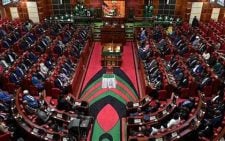Focus on Parliament as Finance Bill transits to Second Reading

As the Finance Bill 2023 moves to the Second Reading stage of the law-making process, the focus of Kenyans will be on whether some of the key contentious proposals will be amended, before the bill is passed into law.
The bill, which was tabled for first reading on May 4, majorly seeks to mobilise revenue by increasing tax rates, an approach that has been opposed vehemently by a section of Kenyans.
“The proposals in the Bill are significant and may have an impact on the businesses of several taxpayers. It appears that the National Treasury is continuing to pursue a policy of revenue mobilisation by increasing tax rates, expansion of tax base and real time collection of taxes,” says PWC in its analysis of the bill.
Kenyans will eagerly wait to see if the proposed deductions into the National Housing Development Fund will be amended, shelved altogether or passed without changes.
Employers concerns
The Finance Bill 2023 proposes that an employee contributes 3 per cent of his basic salary and a similar amount to come from the employer, provided that the sum of the two do not exceed Sh,5000, with the money going to the National Housing Development Fund.
This is one of the most contentious proposals in the bill and has received both praise and condemnation in equal measure.
“The introduction of additional deductions from employee emoluments will further reduce the take home pay of employees. This proposal will also overburden employers with increased cost of employment and may lead to loss of current employment or potential employment opportunities,” notes PWC.
Similarly, content creators will be waiting to see if the proposal that they pay 15 per cent withholding tax on their earnings is amended.
If the bill becomes law without changes on this clause, those paying for content will be required by law to withhold 15 per cent of what they owe the creatives and hand it over to the taxman.
Withholding tax
The 15 per cent withholding tax proposed content creators is much higher than that charged to other professionals, usually five per cent.
“This may result in an effective tax rate higher than 30 per cent for digital content creators resulting in the generation of continuous income tax credits for the creators as the withholding tax of 15 per cent assumes a profit margin of 50 per cent,” said PWC.
Also in contention is a proposal that a taxpayer wishing to dispute a tax demand made on him by the taxman will pay 20 per cent of the disputed taxes or security equivalent to 20 per cent of the disputed tax before appealing to the High Court.
Analysts have termed the proposal unfair and one that impedes access to justice.
“The proposed provision is a limitation of taxpayers’ access to justice and their right of appeal as a party unable to make the payment within the tight appeal timelines would be forced to forgo their right to appeal,” says PWC.
“Given that tax disputes can take several years to be resolved even before the High Court, the provision is likely to significantly affect the cash flows of taxpayers,” it adds.
The proposal to increase the rate of Value Added Tax (VAT) on petroleum products could have a significant adverse effect on the cost of living considering the ripple effect fuel has on the economy.
Finance Bill 2023 proposes to revert the VAT charged on petroleum products to 16 per cent from the current eight per cent.
According to the review by audit firm PWC, this will have a have a significant adverse effect on the cost of living taking into consideration Kenya’s dependency on fossil fuel and the already high global oil prices.
Business owners and insurance sector players will also be waiting to see if a proposal in the Finance Bill 2023 to introduce VAT compensation for the loss of taxable supplies is amended before the Bill becomes law.
“In our view this proposed change is bound to have significant impact for the general insurance sector and the ambiguity in the rationale and framing of the law should be subjected to engagement with stakeholders before being passed into law,” opines PWC.
On the brighter side, Kenyans will be eagerly waiting to see if the proposal to exempt cooking gas (LPG) from VAT will sail through.
The proposal will make cooking gas affordable for more Kenyans, a big win for both consumers and the environment..















